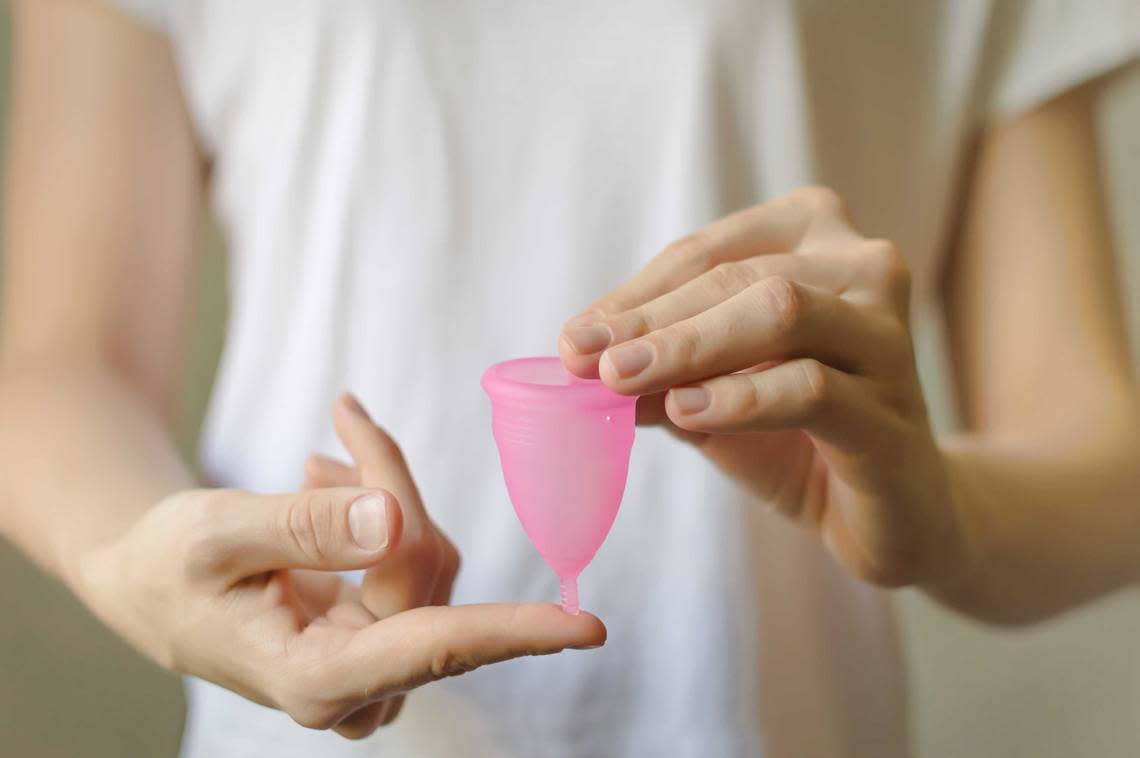Ending menstrual health stigma? Education may be the answer, lawmakers and educators say

Meritt Freer has been teaching science at Miwok Middle School for 24 years. Part of her job is teaching sex education to 7th graders, and over the years, the curriculum has changed and expanded.
But there’s something missing from the state’s mandated curriculum. It’s a health issue millions of people experience: periods.
The California Healthy Youth Act, which passed in 2020, includes nothing about menstrual health.
Freer said requiring the teaching of menstruation will destigmatize periods.
“It’s a biological part of life,” Freer said. “It empowers (students) to know that it’s not bad, it just makes them feel more comfortable and confident.”
Assembly Bill 2229 seeks to expand sexual health education to include menstrual health in California schools. AB 2229 passed through the state Assembly this week with unanimous approval and will head to the Senate next. The bill has also been deemed a possible state-mandated local program from the Office of Legislative Counsel.
Currently, students receive prevention education on human immunodeficiency virus and sexual health. This curriculum includes material on sexuality, pregnancy, sexually transmitted infections and contraception.
If passed, learning about menstrual health will be required by the beginning of next year, Assemblywoman Lori Wilson, D-Suisun City, said.
Sacramento City Unified School District, in compliance with state law, requires students to learn about sexual health once in middle school and once in high school, beginning in 7th grade. Sacramento City Unified School District adheres to the curriculum set out by the California Healthy Youth Act.
This curriculum includes abstinence, accessing resources for sexual and reproductive health care, information about pregnancy, sexual orientation and gender. These lesson are usually taught by 7th grade life science teachers and high school biology teachers.
Breaking stigma with education
For students who experience periods, knowing about their menstruation cycle can make the difference, Freer said. Today, it’s becoming increasingly common for children to go through puberty at a younger age.
Adolescent girls often have a lack of knowledge about puberty and menstrual health, according to a study from the Mailman School of Public Health at Columbia University. Students surveyed said even when they did receive menstrual education, it was inadequate and disengaging.
Wilson who authored the bill, said a group of middle school students pitched AB 2229 through her “there oughta be a law” program, where she allowed her constituents to submit ideas for legislation.
“They all were sharing their own stories of issues with their cycle and things they didn’t know and how they looked on the internet and found that information. They didn’t really have the type of information that they needed,” Wilson said. “The schools should have really given them more information when they were doing sex ed.”
Wilson said the stigma about menstruation comes from a lack of knowledge and a “dirty” association with the topic.
A Harris Interactive poll from 2019 surveyed 2,000 American teenagers, ranging from 13 to 19 years old. The survey found that 69% of teenagers felt embarrassed having to bring period products to the bathroom.
“Menstrual education is important because it will help pupils understand the naturally occurring role it plays in a healthy body and break the stigma surrounding menstruation,” the bill’s floor analysis stated. “The stigma surrounding menstruation causes unnecessary shame, including body shaming, and prevents those menstruating from seeking medical advice when needed.”
Because talking about menstruation is seen as uncomfortable, there is a lack of understanding of how periods work and what are abnormalities look like. The only way to get rid of that association is through education, Wilson said.
“When someone doesn’t know these awkward things that are happening with their body, then there’s shame surrounding it,” Wilson said. “If it’s something you don’t talk about, it makes it even worse. If we want to reduce the shame around menstruation, then we have to make it normal.”


